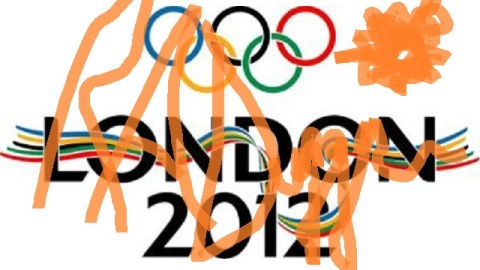Why Are the London Olympics so Afraid of Graffiti Artists?

With less than a week before the opening of the 2012 Summer Olympics in London, England, anticipation and some dread both fill the air. Ever since the Munich games in 1972, the specter of terrorism comes to play as much as the greatest athletes in the world. It’s estimated that as much as £553 million (or approximately $864 million USD) will be spent on security for the London games. Authorities are looking for any edge they can get to keep people safe, but an unlikely “edge” was sought recently by the “raiding” of graffiti artists in England in a preemptive strike against possible graffiti-related attacks during the games. Of all the flavors of terrorism on the modern menu, why would the authorities waste the time and resources necessary to thwart graffiti artists? Why are the London Olympics so afraid of graffiti artists?
Four established graffiti artists were “raided” at their homes and taken in by authorities for questioning on July 17th. (It was originally reported that 30 artists were questioned, but that number has now been disproven.) Each artist originally thought they were an isolated case until they recognized fellow artists at the police station. They also had another important thing in common—all were no longer “illegal” graffiti artists. All of them either no longer worked in graffiti or had gone “legit”—painting either only after getting permission from the owner of the site or on commission for corporate clients. These weren’t street hoods. These were legitimate artists.
After making references to some criminal charges dating back to the “bad old days” of the 1990s, police told the graffiti artists that they were “bailed” (i.e., in danger of being jailed) until November 2012 if they were found travelling on any form of London public transportation, were found carrying spray paint or any other graffiti tools, or were caught within one mile of any Summer Olympics venue. The artists then allege that the authorities confiscated laptops and other personal electronics, thus hampering their ability to make a living of any kind.
When the London newspaper The Independent investigated the story, authorities responded that the arrests were made “in connection with a live and ongoing criminal investigation into linked incidents of criminal damage committed between January 2007 and July 2012” and that “[t]wo of the men were also further arrested on suspicion of inciting criminal damage.” The artists were also taken into custody at Victoria train station and not at their homes, according to the spokesperson. However, The Independent did discover that the facts of the Olympics-related ban were, indeed, accurate. While a lot of the facts seem to be unclear, the one fact even the police will confirm is that security concerns for the Olympics are part of the case. British Transport Police admit that the bail conditions involving the Olympics are designed “to protect the integrity” of the games, Olympics, but another source reasserted that the case itself is part of a long-term investigation that just happened to climax less than a fortnight before the opening ceremonies.
The only graffiti artist specifically connected to the case so far is Darren Cullen, who goes by the artist name of “SER.” Cullen founded the graffiti/urban painters collective Graffiti Kings, whose website ironically states that they are “The only Street Art company approved by the British Government.” Graffiti Kings even painted an edgy but still respectful Jubilee year tribute to Her Majesty Queen Elizabeth II. Since turning professional in 1996, Cullen has worked hard to legitimize graffiti as a serious art form (an effort that has quite profitably succeeded) and even reached out to at-risk youth by teaching them legitimized graffiti as a non-violent means of expression. The most ironic part of Cullen’s Olympics ban is the fact that his work has been used by Adidas, one of the most powerful corporate players at the games. If Cullen does get in a jam, it will be interesting to see who has more pull—the British police or the sneaker company.
Apparently this preemptive brand of security isn’t new for the British police. An undisclosed (but apparently large) number of people were arrested or searched before and during the wedding of Prince William and Kate. Just days before the graffiti arrests, a court decision upheld the legality of the wedding seizures, perhaps opening the door for more Minority Report-style “PreCrime” police action. It’s troubling that the authorities are practicing mind reading and/or predicting the future, even in the name of Olympic security. Sadly, it seems that these “future crimes” are based on an old idea of graffiti as a criminal act rather than a legitimate art form. If the London Cultural Olympiad wants to be serious about promoting the arts during the games, it should make sure that all artists—including graffiti artists—can play, too.





